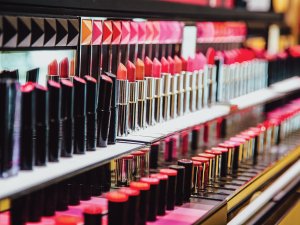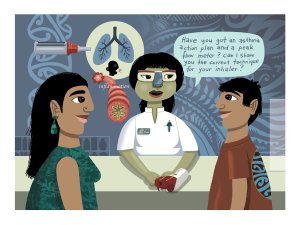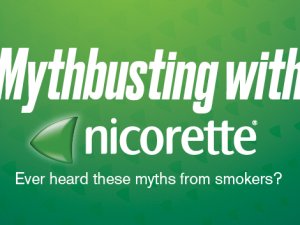Academic pharmacist Nataly Martini discusses the medical management of asthma in adults and adolescents, which has evolved to prioritise early anti-inflammatory treatment. She also explains how to improve patient outcomes by proactively identifying poor asthma control and supporting equitable access to education and treatment
Overloaded skincare routines may cause premature ageing
Overloaded skincare routines may cause premature ageing

Over time their skin just never gets a break and they develop an intolerance
GONE ARE THE DAYS of the simple skincare routine of cleanse, tone and moisturise – now women will commonly use up to eight products morning and night before they look at applying make-up.
Between double cleansing (cream make-up remover and gel for residue), exfoliating with an acid, applying serums, retinol and perhaps niacinamide followed by moisturiser, a modern skincare routine can cost hundreds, if not thousands, of dollars a year.
But a leading New Zealand dermatologist queries the efficacy of these products and points out potential harms that customers may not be happy to hear about.
The more products we use and the more we use of them, the greater the risks to our skin, says Louise Reiche, chair of the NZ Dermatology Research Trust and a practising dermatologist in Palmerston North.
“The skin is really a barrier to keep the inside in and the outside out. If we were too good at absorbing things through the environment, it would be a toxic overload.”
In her practice, problems from excess use of skincare products, such as a compromised skin barrier, are common.
“The people I see with the most problematic skin are the ones who come in with shopping bags full of all sorts of products.
“Over time, their skin just never gets a break and they develop an intolerance.”
If this happens, Dr Reiche recommends weaning off the products and using fragrance-free, gentle skincare, and a topical anti-inflammatory cream to treat irritation.
When people have “normal” skin, so-called active ingredients are probably not going to do much harm but also won’t do a lot of good, she says.
“Unless you have sensitive skin that you’re developing allergies from, you’re probably not harming yourself but you might be wasting ingredients and wasting money with an unrealistic hope,” Dr Reiche says.
If people are seeing good results, it’s likely they’re getting a moisturising effect.
“These [products] are expensive moisturisers that are made to look healthier than they are, and like they have a richer medical response than they do.”
Vitamin C is a popular ingredient in skincare with claims ranging from building collagen to skin brightening and reducing pigmentation. Though it is an antioxidant, it’s not very effective when it’s applied to skin, says Dr Reiche.
“You’ll get much more benefit from vitamin C by eating it as part of a healthy diet.”
Niacinamide (a form of vitamin B) has anti-inflammatory effects, is an antioxidant and is also more effective in dietary form.
Dr Reiche says a recent study shows that two daily doses of 500mg of niacinamide can reduce the development and progression of early skin cancers and reduce pigmentation. AHAs, BHAs and other acids used to exfoliate skin essentially irritate it to damage it and provoke a healing effect to reveal new skin.
“Initially, it can look like a younger skin because it’s a bit swollen and tighter but it doesn’t last for long.”
Retinol was traditionally prescribed by dermatologists for conditions including acne but now some strengths are available OTC and are popular as anti-ageing treatments.
Dr Reiche says there’s “a bit of evidence” that topical retinoids help reduce photo-ageing (sun damage) by enhancing normal cellular differentiation, but warns they can cause irritant dermatitis.
She adds the baby smooth skin that can result from using retinols and other “anti-ageing” ingredients can also be a double-edged sword.
“Some theories say that ageing is related to the clocking up of the number of cell turnovers. So, if you’re accelerating your turnover, you may initially get an appearance of more youthful skin but further down the line you could look older more quickly than you normally would.”
The best bang for your buck to protect your skin from ageing is a broad-spectrum 50+ sunscreen.
“That’s where you’re going to get the best return for anti-ageing and skin cancer prevention and it will also help to reduce that blotchy pigmentation issue,” Dr Reiche says.
We're publishing this article as a FREE READ so it is FREE to read and EASY to share more widely. Please support us and the hard work of our journalists by clicking here and subscribing to our publication and website







